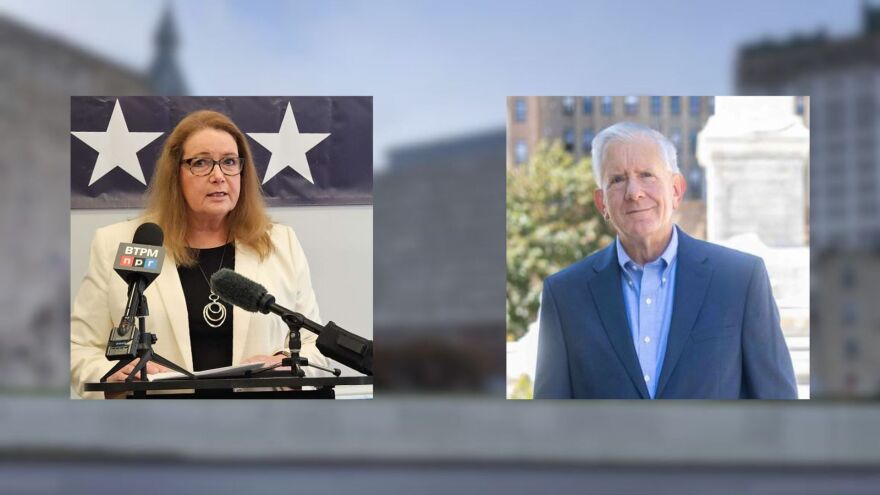This year’s county comptroller race features incumbent Kevin Hardwick, who has built experience in the office since 2021 and has spent time as a county legislator, and challenger Christine Czarnik, who has 20-plus years’ experience as an accountant.
Hardwick says one of his concerns moving forward is the potential for lost revenue. He says that’s why it’s important that the proposed county budget scales back spending for next year, to adopt what he calls a conservative budget and avoid committing to many large-scale projects.
“We're at a point, again, because of the uncertainty coming down the road and because of our heavy reliance on sales tax, which right now is fine, but we are. We're always looking around the corner and worried that things are going to drop off.”
Czarnik says a key priority is improving how much time it takes for the county to make expense payments. She says current repayment standards make it difficult for small businesses to work with the county because they can’t afford to wait.
“Big businesses can handle it. Slap a little interest on there, you know; their business continues to move on. I really want to see that the contracts that the county puts out go to local businesses whenever possible.”
One area they have similar feelings for is plans for a new jail, which would be one of the county’s largest long-term expenses. Next year’s proposed budget from county executive Mark Poloncarz includes $20 million for engineering and development of a new jail and holding center in Alden. But Czarnik says the move should be closely examined before being put in place.
“You need to quantify and put down on paper with numbers what your position is. And talk to the legislators, talk to the county executive and make sure that they have as much information as possible before they make any decisions.”
Hardwick says the plan is moving fast, and he would prefer slower progress because there are major future expenses that would go well beyond next year’s cost.
“It almost commits you to the rest of it, you know, and the rest of it is, you know, darn near half a billion dollars for the actual construction of the thing … This is not some, you know, $300,000 feasibility study. I mean, we've done those already. This is the actual design work that we're going to be starting.”
Hardwick says a top priority if re-elected is maximizing domestic tourism and increasing support for tourism promotion. The county’s newest hotel occupancy tax would place a tax on hotels, motels or other forms of rental lodging for bookings less than 30 consecutive days. That would include 3% at locations with 30 or less rooms and 5% at locations with more than 30 rooms.
“That's bringing in a whole lot of money, and most of that money is going to end up with Visit Buffalo … As Canadians stop coming across the border, I think it's incumbent upon us to make sure that those hotel rooms are filled and, you know, we're going to have to fill them with, with more people from the States.”
He says the money toward Visit Buffalo means increasing advertising and marketing efforts to draw in more domestic tourism.
Czarnik says implementing a Taxpayer Transparency Tool is among her top goals, which would allow anyone to go online and search a public database for how the county’s expenses are being used.
“I wouldn't try to create it from scratch, because it exists, and we want to, we want to get that implemented quickly … I think that's important, is to show that if, if you say you care about transparency, you make it happen.”
Czarnik says the transparency tool would reduce the number of Freedom of Information Law requests, since residents and other members would already be able to access the financial information that usually requires a request.



